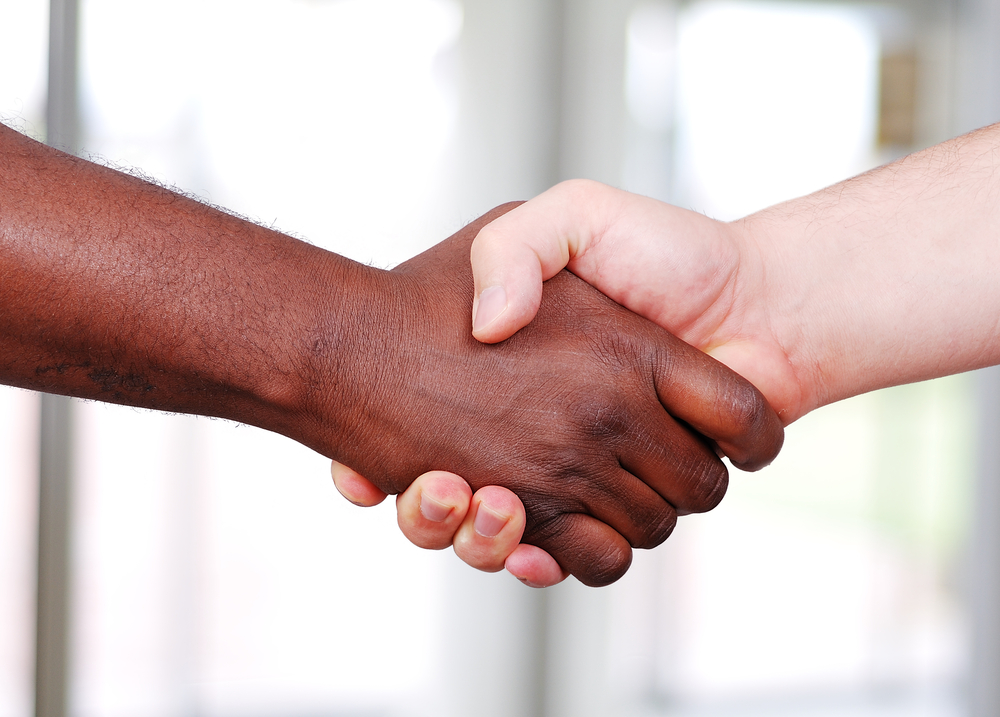Elizabeth Stoker Bruenig wrote some really thought-provoking stuff recently about civility, which prompted interesting responses from Corey Robin and Freddie DeBoer. She argue that civility was an overrated virtue in discourse, and could often be used as a tool by the powerful to suppress prophetic, angry calls for justice, and allow wrongdoing and exploitation to continue. I don’t presume to respond to all the points she raised, except to say that the posts really made me think, and made me reconsider where I stand on the whole question of civility in debate.
Having done said reconsidering, I’m pretty sure I agree with Elizabeth, and also pretty sure that I disagree with her fundamentally. I think I’m being perfectly consistent in holding those positions and I think the best way to elucidate them is to respond specifically to one of the points she raised:
3.1.) Civility is intentionally squishy. … (One of the chief defects of demands for civility is that they rarely elaborate as to what they mean by civility In fact, it is an ever-expanding circle. Sometimes civility is just a series of add-ons: say whatever you were going to say, but with all due deference, introducing your opponent as your friend and respected partner, shaking hands, calling everything a good question and a good response and a good point even when it’s a heap of junk. This is just pageantry. And on other occasions, civility is a series of subtractions: say what you were going to but with no foul words, nothing personal, nothing that could be construed as snark, nothing offensive…Once you make every possible subtraction and addition, you’re very likely communicating a much different point than you initially wanted to. And once you do say: “My honored associate [Person] is a heinous excuse for an individual,” because that’s precisely what you intended to argue, you’re still going to be accused of incivility.
I think she’s dead right on this at least – there are a number of very different things that people mean when they word “civility”, and I think we’re dealing with at least three of them here. And I think some kinds of civility are much more important than others.
Civility as adherence to a code
Elizabeth spends much of her posts objecting to the idea that all debates should be conducted in the same argumentative style:
This means that it’s more about adopting the style of a particular class of discussion than anything else. When people call for civility, what they mean is that you should take whatever it is that’s being said, and rephrase it and reorient yourself until it comes off as similar in style to a kind of salon-esque neutral debate between equal arguers. This has several problems.
And chief among them is the fact that this style of debate is very, very elite-friendly. It is easy for the privileged to shut out the marginalised using appeals to this kind of discourse, because often their very marginalisation makes them less likely to employ it. In Chesterton’s words: ”We are justified in enforcing good morals, for they belong to all mankind; but we are not justified in enforcing good manners, for good manners always mean our own manners.”
Now, I don’t think “salon-esque” (as opposed to Salon-esque) debate is necessarily elitist. This kind of civility has its time and place – but I agree with Elizabeth that that is not “always and everywhere”.
I also agree that the constant pursuit of this kind of civility can become a sort of phony war – we spend the whole time arguing about the argument instead of just having it. The appeal to civility can just be an excuse not to actually engage. Corey Robin’s first post on the matter illustrates the way in which this quickly becomes absurd:
Often, (advocates for civility) just show up on my blog or my FB page or in my Twitter feed, out of nowhere. I’ve never heard of them; they make no effort to introduce themselves. And worse, they make no effort to even understand the conversation. They just plop into the house, like Aunt Agatha on Bewitched, clambering down the chimney and making a mess, and start yelling at me or my interlocutors. Possessed by what seems to be a usually unearned confidence in their own intelligence and perspicuity, they assume they know exactly who I am, what I think, and just barrel on. Actually, I don’t sense that they’ve given me even one thought. They just plow on. And then, after I or my interlocutors make some attempt to explain where we’re coming from, to insert ourselves into the monologue, they just keep going, or disappear. Without ever saying goodbye or thank you.
Me, I would be mortified to act like this. Because that’s how my mom raised me. Because I actually, kinda, sorta, in my upper-middle-class heart of hearts, believe in civility. Them? They seem utterly incapable of embarrassment or shame. Because they don’t.
To be honest, that’s why I’m really skeptical about the call for civility: not because it’s a tool to silent dissent, but because the people who call for it almost never practice it themselves.
Civility as listening
Nobody thinks they’re the bad guys. There are very, very few people who get up in the morning and wonder who they’re going to bully today.
Most people, in their own minds, are good. They’re trying to protect something, or fight for something they see as important. Everyone is the hero of their own story.
In an earlier piece responding to National Review’s Kevin Williamson on transgender people, Elizabeth warned against “punching down”, a warning she repeats here. What it essentially boils down to is speaking to (or at) those less powerful than you without understanding them.
This means any possibility of, say, authentic encounter is pretty unlikely: the relationship is vertical and hostile.
In the same piece, Elizabeth has no truck with
…creating strains of argument that don’t seek to remedy, heal, or authentically encounter the people they’re aimed at.
Well, perhaps I’m naïve, but I’m pretty sure calling people bullies or impugning their character doesn’t lend itself all that well to authentic encounter either.
If you start attacking people’s bona fides when they disagree with you – even on something pretty fundamental, something where they seem obviously wrong – without trying to understand what it is they see themselves as protecting or standing up for… well that’s not going to do much to persuade them that they’re on the wrong track. They’re likely to close up, disengage, and write you off as a source of useful correction. It’s not about speaking the language of the powerful – it’s about trying to understand the language of your interlocutor.
Even if you’ve given up on trying to win someone over – if the issue being debated is so urgent that the priority is defeating people rather than converting them – then I’m still not convinced that being uncivil is going to serve any useful purpose. Those who are inclined to agree with the person you’re calling out won’t feel like they’re being understood either, and you’ll win few converts to your cause.
I’m just not convinced, either, that meanness and personal attacks can be just as effective at convincing people as attempts to listen and engage. Of course, I ultimately can’t prove this one way or the other without some kind of large-scale survey, but it’s telling that the UK lay group Catholic Voices have found such success in “defending the faith without raising your voice“; and more telling again that psychologist Jonathan Haidt writes in his book The Righteous Mind (based on pretty substantial body of research) that “No matter how good our logic, it’s not going to change the minds of our opponents if they are in combat mode, too. If you really want to change someone’s mind on a moral or political matter, you’ll need to see things from that person’s angle as well as your own.
Elizabeth compares reactions to her (generally civil) writing to reactions to her husband Matt’s (generally less civil) work, and says that he is the one more widely regarded as an “intellectual powerhouse.” That’s as may be. All I can say is in any situation in which I was arguing with an economic neoliberal or right-winger and actually hoped to change their mind, I would almost always prefer to link them to one of Elizabeth’s pieces than to one of Matt’s. And I know quite a wide variety of people, with quite a wide variety of argumentative styles.
I know I have never personally verified that anything I’ve argued has persuaded anyone politically.
It has – believe me.
Looking at civility this way, Matt Tabbi’s foul-mouthed, rude obituary of Andrew Breitbart (which Elizabeth defends as a great piece of uncivil writing) can be defended on the grounds that Tabbi was certainly listening to Breitbart – was, in fact, speaking his language.
But isn’t it the case that some people don’t deserve to be respectfully listened to? Should the powerful really be enabled in making arguments that push the downtrodden further into the muck?

In an ideal world, no. But we don’t live in such a world, but our complicted, messy one.
Leave aside the fact that sometimes the more powerful, privileged interlocutor will be making the better argument. In practice, who is powerful and who is not can change very quickly. Alexis De Tocqueville observed America’s tendency towards shifts in public opinion that worked like avalanches. As soon as some new social development or idea is viewed as acceptable, right or good by a majority, the balance of power very quickly shifts against those who held the old views. Sometimes these rapid swings of opinion have good consequences (take attitudes to segregation). At other times, less so (former Mozilla CEO Brendan Eich, by all accounts a powerful man, suddenly found himself forced out of a job when he found himself on the wrong side of a rapid cultural shift on gay marriage).
In Ireland, these shifts are if anything even more rapid, and the weight of conformity even more stifling: we’re a very small country, and this makes such conformity very easy to informally enforce. And this, above all, gives me pause in declaring some arguments anathema, and loudly proclaiming that to hold them is indicative of a lack of virtue.
Ireland, in the first few decades after the foundation of the state, attempted to set itself up as the ideal Catholic society – its laws informed by Church teaching, and the Church even given a special place in the constitution.
Members of the church hierarchy, along with politicians, the police, the establishment generally, and a good chunk of the population then proceeded to set about stigmatizing anyone who didn’t live up to the principles of Catholic teaching. And if you happened to actually disagree with these principles… heaven help you. Now, the version of Catholicism promoted was often pretty warped, and Irish society collectively violated Jesus’s teachings left, right and centre. I’m sure Elizabeth would have been decrying much of it in no uncertain terms.
But, nonetheless, the episode should give us pause. Ignore all the legal stuff for a minute and just look at the stigma. Ireland was full of men and women who honestly believed that they were right, and who stigmatised people who they believed held morally degenerate views because they believed that, in Elizabeth’s words: “sometimes the point is to demonstrate that [position x] is not in keeping with the qualities of a virtuous person.” Some people just got frozen out of debate and discussion,because they held views that were seen as morally wrong, bad, not supportive of virtue.
And here’s the thing: loads of those views that old Ireland stigmatised actually were bad. I believe in the Church’s moral teaching. So does Elizabeth. People who were undermining those teachings were, insofar as they were fighting the substance of the faith rather than the actions of the hierarchy, mistaken. But I passionately believe that they should have been listened to and answered – not attacked for the mere fact of their disagreement.
Civility as adherence to a speech code can be a mudguard for the powerful, but civility as listening is more likely to protect contrarians. And every society needs its contrarians – because sometimes the very things that seem obviously good, right and even sacred are not so. Sometimes the apparently crazy or dangerous will be right.
We’re all human. We’re all flawed. How do you know you’re impugning the right people? What if the people you see as powerful malefactors today are the ones you’ll see as victims tomorrow? This isn’t a pitch for moral relativism, but for a certain caution, a certain willingness to hear out even the worst arguments – and then, having understood them, oppose them wholeheartedly if need be. If you can’t pass an Ideological Turing Test and explain your opponent’s position as well as they can, you’re not best placed to judge the quality of their argument.
To return to Williamson for a moment: it’s of course possible that in writing his piece he wasn’t thinking of the wellbeing of transgender people at all. But he may also have seen the people who are considering a sex-change operation as victims, people being lead by deficient ideologies and negligent medical practitioners towards irrevocable decisions that will not, in the long run, be in their interest. From this point of view, supporting a legal, medical and ethical regime that facilitates people in surgically removing their genitalia for psychological reasons is a pretty good candidate for “a position not in keeping with the qualities of a virtuous person”. Williamson might well see himself as a person trying to pull vulnerable people back from the edge of a cliff.
He may well, in other words, have been acting out of love. But if that was the case, the fact remains that the language and tone he used made it extremely difficult for transgender people to hear him. But that cycle only breaks if someone breaks it. To be best correct Williamson on his lack of understanding, we have to understand him.
When we are civil to those we engage with, however abhorrent we find their position, we make it that much more likely that we will actually change hearts and minds.
I’ve rambled on well enough for one post, but there’s still another definition of civility to go. To sum up, I think that civility as code-adherence is very much optional, civility as listening is recommended – but the last meaning of “civility” I’ll discuss is pretty much essential. More soon.













